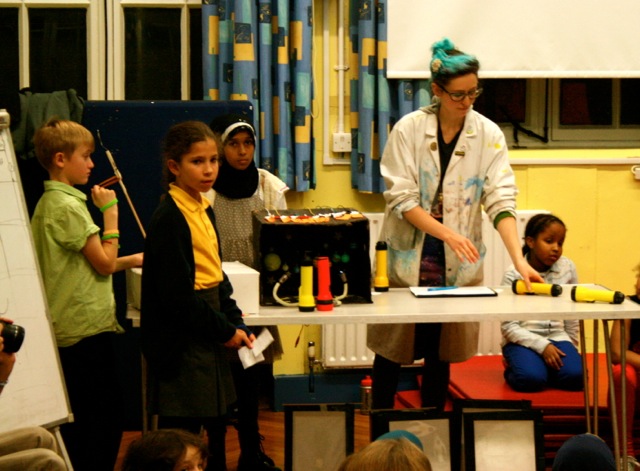When it comes to preventing extremist or radical influences in schools, the government doesn’t have a lesson plan.
Despite Michael Gove’s centralising tendencies, neither he nor the cabinet colleagues he’s been fighting with have ever laid out what exactly schools are supposed to do to stop the – real or imagined – Islamic extremist threat.
Nor have they ever identified where this threat is supposed to come from, or how serious it really is.
No wonder those beleaguered Birmingham schools have ended up in such a mess.
(There’s a separate and serious issue of governance in the Birmingham schools. But I’m focusing here on the Ofsted Chief’s conclusion that “in several schools inspected, children are being badly prepared for life in modern Britain.”)
So where should schools turn for help?
Well, there’s the often referred to Prevent Strategy of course, with its 43 jumbled paragraphs on education that skip from maintained, to free, to faith schools. Whatever the institution, it points out, a satisfactory education must be provided, and a “broad and balanced curriculum” must be taught.
But then, after a swerve into discussing the role of the Charity Commission in monitoring independent schools, it switches to extremism as a safeguarding issue. “Protecting children from harm and promoting their welfare depends on a shared responsibility and effective joint working between different agencies,” it says.
Well, yes. But how exactly? Should teachers and governors report a child with extremist views to social services as they would if they thought that child was being abused? Which views exactly would trigger the intervention? And what if those views were shared by some of the staff?
Maybe the Association of Chief Police Officers can help. Their guidance, Prevent, Police and Schools, at least has the advantage of a bobby’s blunt clarity. “Prevent is about stopping people becoming terrorists or supporting terrorism,” it says.
But then it adds, “The purpose of Prevent in schools must be to protect children from harm,” (hold on, we’re stopping terrorists by protecting potential terrorists from themselves?) “and ensure that they are taught in a way that is consistent with the law and British values.” Ah. British values. Good luck with defining those (ACPO doesn’t try).
Good luck also with the paragraph on “resilience building teaching activities,” involving such impenetrable tasks as “making a connection through good design and a young person centred approach.” No, I’m none the wiser.
Let’s take a look then at the DfE’s “toolkit” which, like ACPO’s document is cited in the Prevent Strategy. Here, at last with curriculum advice and promoting human rights, we get a bit of practical help for schools and a hint of what the real issue is.
Because none of what has happened in Birmingham is really about terrorism. Nobody is suggesting that these children are being prepared to carry out attacks.
As the Chief Constable of the West Midlands, Chris Sims said when the government appointed a former counter terrorism police officer to investigate, “It’s an issue about cohesion and the way social cohesion plays out into schools, but it certainly isn’t … an issue about counter-terrorism,”
He’s absolutely right and if we want to address social cohesion, we don’t need Prevent.
As Ofsted itself makes clear, what we need is a healthy dose of RE.
Last October, the schools inspectorate published a highly critical report on the quality of Religious Education teaching. If taught properly, the report stated, Religious Education “plays a key role in promoting social cohesion and the virtues of respect and empathy, which are important in our diverse society”.
But Ofsted concluded that RE wasn’t up to scratch in more than half of schools. It went further, charging that “teaching often fails to challenge and extend pupils’ ability to explore fundamental questions about human life, religion and belief”.
That’s hardly surprising. There’s no National Curriculum for RE. Content is supposed to be determined by local authority Standing Advisory Councils on Religious Education. But cuts in council funding mean they rarely meet. There are far too few specialist RE teachers and – again thanks to the cuts – training has been scaled back. No wonder Ofsted found, “Teachers were unwilling to open up enquiry in case pupils asked challenging or controversial questions with which they felt ill-equipped to deal.”
And that’s when it’s taught at all. In theory, RE is compulsory but about a third of non-faith schools don’t offer the subject for GCSE. It won’t be one of the core subjects in the new English Baccalaureate.
As a cross-party committee of MPs said last year, RE is being “marginalized” in schools “just as it is needed most.”
Because it is needed. A strong national curriculum that explores and explains a mix of religions to children who have little or no exposure to other faiths elsewhere would be a start. Then we should equip specialist teachers to challenge offensive or radical interpretations – of any religion.
We shouldn’t be safeguarding or protecting children from extremism. We should be exposing them to it, talking to them about it, explaining it and using specialist knowledge to help children to work out for themselves why it’s wrong.
A well planned, compulsory, well taught Religious Education curriculum is one place to start.

Pingback: Modern Governor The Curriculum’s Mightier than the Sword - Modern Governor